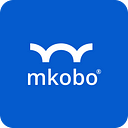
According to the February 2022 report by PwC on Employee Financial Wellness only 42% of 3,200 surveyed full-time employees stated their salary is keeping up with increasing costs of living, and 1 in 4 full-time employees is working more jobs than in previous years to make ends meet, and 56% are worried about their finances.
The reason for this is not far-fetched.
The rising inflation rate plus the aftermath of the global coronavirus pandemic, has had a negative impact on salary earners who have a relatively fixed income.
In Nigeria, for example, recent data from the National Bureau of Statistics show the inflation rate hit an all-time high of 18.60% in June 2022. This means that an employee’s ability to provide for his basic needs is becoming difficult due to the high cost of goods and services.
In 2017, PwC published a report that links financial stress to employee productivity, and the negative impact on the overall profitability of the organization.
What is Financial Wellbeing?
In a broad sense, financial well-being can be defined as having peace of mind regarding one’s personal finances. Ideally, this cuts across one’s ability to control, plan for the future and meet day-to-day personal financial goals.
However, in reality, a salary earner is faced with utility bill payments, family expenses, transport fares, car repairs, hospital bills, high cost of living due to inflation and so on which leads to financial stress.
Employees’ Financial Stress decreases Productivity.
The total well-being of an employee comprises their mental, physical, and financial well-being. It is important to note, however, that financial stress causes emotional stress, which can lead to health problems. When an employee is comfortable financially, their health is likely to be better, resulting in lower healthcare expenses for employers, and increased employee productivity, engagement, and retention rates.
While employees are not expected to allow personal matters to interfere with their job, productivity is often tied to the physical and mental state of the worker. It is hard to separate employees from some areas of their personal life such as financial well-being.
According to the 2017 PwC survey, financially stressed employees were five times more likely to lose concentration while at work. Distraction at work accounts for up to 9 hours per week loss in man hours. 20% of full-time employees have acknowledged missing a day of work to cope with financial difficulty.
Many experts have proposed various strategies for companies to help their employees overcome financial stress. Some solutions include revising their company’s compensation packages to keep up with inflation and providing free financial counseling. One other way to reduce financial stress is access to salary advance.
Mkobobank offers a solution to boost Employees Financial Wellbeing
Access to credit in an emergency is a HUGE problem in Nigeria today, this has given rise to a lot of Payday lenders charging up to 30% interest per month.
One reliable way of giving your employees access to salary advances is by adopting the Earned Wage Access (EWA) program.
Earned Wage Access (EWA) is an on-demand, interest-free pay which gives an employee access to their wages as they earn them. When it’s payday, the amount accessed in advance is withdrawn automatically from the salary.
Mkobobank is a digital bank for salary earners providing a solution to reduce employee financial stress. The vision is to improve the financial wellbeing of economically active Nigerians using the EARLYPAY feature in the mobile app. EarlyPay is an Earned Wage Access program that gives employees access to up to 50% of their accrued/earned salary at any time INTEREST-FREE.

Mkobobank gives employees the ability to make everyday their payday using EarlyPay — earned wage access, anytime they need emergency funds to cater for personal needs e.g bill payment, family expenses, transport fare, home or car repairs, hospital bills, etc.
EarlyPay breaks up the weekly, bi-weekly, or monthly pay cycles so workers can receive money that they’ve already earned before their salary to meet any financial emergencies.
Mkobobank is owned and managed by Mkobo Microfinance Bank Limited which is fully licensed by the Central Bank of Nigeria (CBN).
Visit www.mkobobank.com to learn more on how Mkobobank’s EarlyPay can boost your financial wellbeing or that of your employees.
